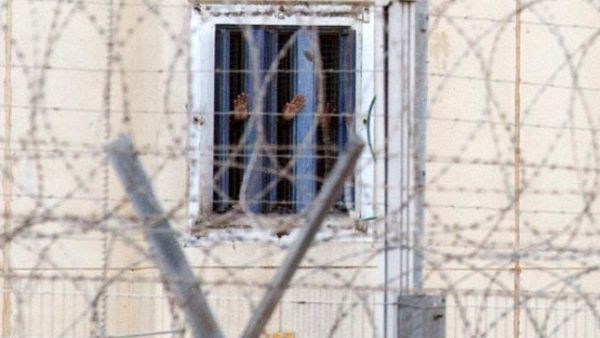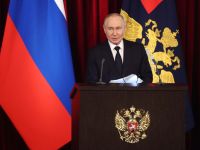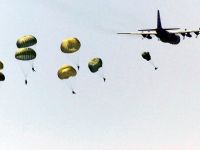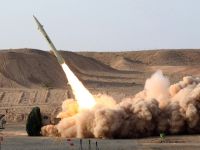The warden for Israel’s Nafha prison announced Thursday evening that prisoners will be banned from performing Friday noon prayers the following day, according to the Palestinian Committee for Prisoners’ Affairs.
The committee said the warden informed prisoners of the decision and threatened that every cell of the prison will be raided if the decision is violated.
The decision comes after dozens of Palestinian prisoners were injured on Wednesday when Israeli forces raided section 14 of the Nafha prison.
Several prisoners were hospitalized for pepper spray burns and being beaten with batons by Israeli forces, with at least one sustaining critical injuries.
Israeli Prison Services spokesperson Assaf Librati told Ma’an Thursday evening that Wednesday’s clashes began with prisoners in section 14 throwing rocks into the hallways and shouting, though it was unclear what they were protesting.
Librati said that only the prisoners in section 14 are being banned from Friday prayers, which prisoners usually do together as a group in the yard. He said they are “welcome to pray inside their cells.”
He added that prisoners in other sections of the prison -- despite being allowed to pray outside as usual -- “are not cooperating” with the warden and have locked themselves inside their cells in solidarity with prisoners in section 14.
Prisoners in the Ramon and Ktziot prisons have also announced that they will take steps in solidarity with the Nafha prisoners, according to the committee.
Israeli prisons routinely take punitive measures in response to protests staged by Palestinian prisoners. Many Palestinian prisoners face torture, denial of family visitation, and medical negligence.
Earlier this month, Palestine Prisoners’ Center for Studies spokesman Riyad al-Ashqar said solitary confinement was being used by Israel against hunger-striking prisoners as a way to pressure them into ending their strike.
On Thursday, Palestinian prisoner Shukri al-Khawaja suspended his hunger strike in protest of solitary confinement due to his deteriorating health condition.
Palestinian prisoners affiliated with the Islamic Jihad movement and the Popular Front for the Liberation of Palestine (PFLP) staged protests at the end of March in a number of Israeli prisons, including Nafha, to demand an end to solitary confinement, permission for prisoners to receive family visits, and a resolution to overcrowding issues.








